Sheng-Chi Yang
PFML-based Semantic BCI Agent for Game of Go Learning and Prediction
Jan 10, 2019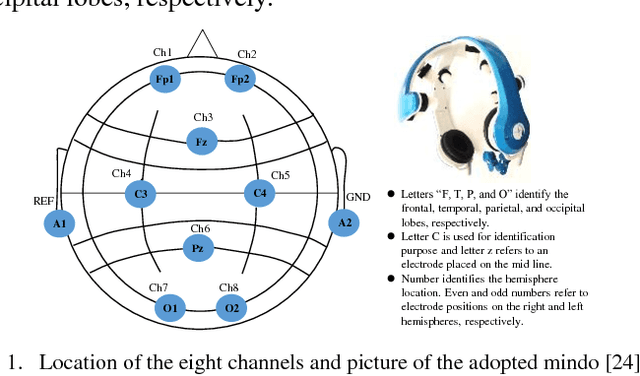
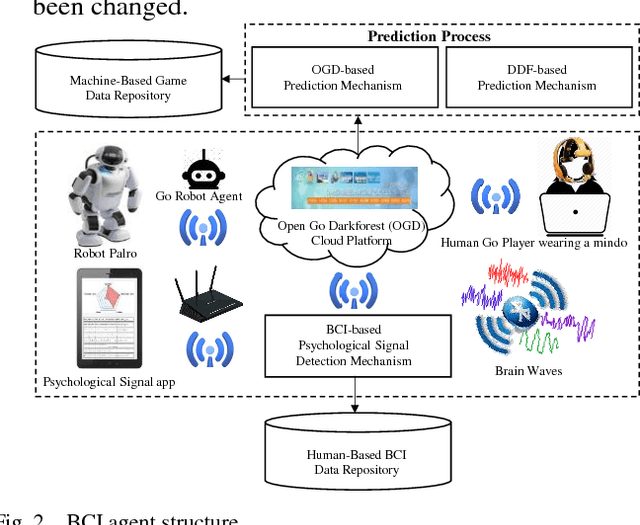
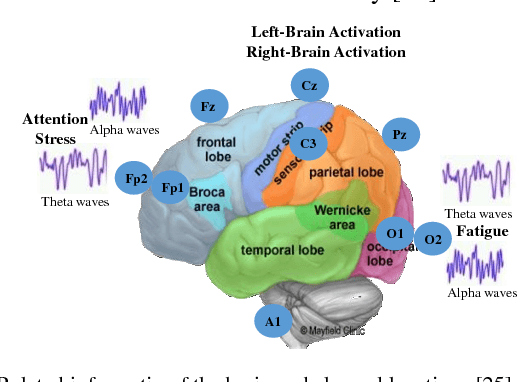
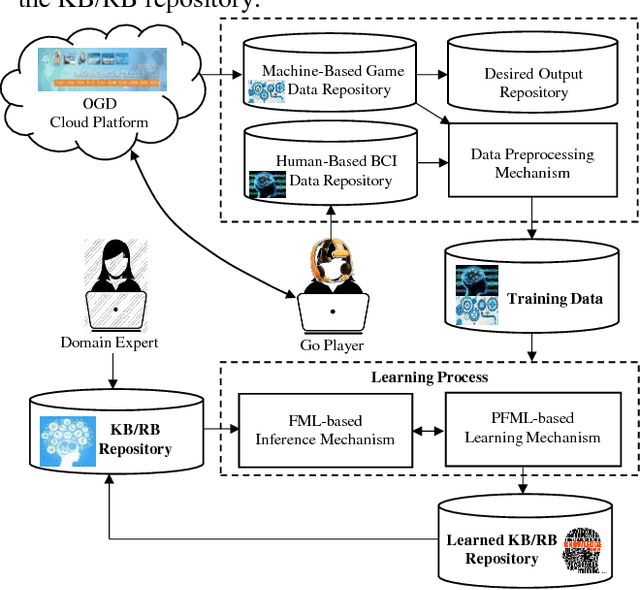
Abstract:This paper presents a semantic brain computer interface (BCI) agent with particle swarm optimization (PSO) based on a Fuzzy Markup Language (FML) for Go learning and prediction applications. Additionally, we also establish an Open Go Darkforest (OGD) cloud platform with Facebook AI research (FAIR) open source Darkforest and ELF OpenGo AI bots. The Japanese robot Palro will simultaneously predict the move advantage in the board game Go to the Go players for reference or learning. The proposed semantic BCI agent operates efficiently by the human-based BCI data from their brain waves and machine-based game data from the prediction of the OGD cloud platform for optimizing the parameters between humans and machines. Experimental results show that the proposed human and smart machine co-learning mechanism performs favorably. We hope to provide students with a better online learning environment, combining different kinds of handheld devices, robots, or computer equipment, to achieve a desired and intellectual learning goal in the future.
Ontology-based Fuzzy Markup Language Agent for Student and Robot Co-Learning
Jan 26, 2018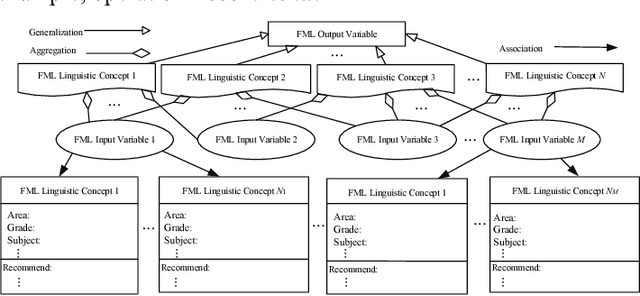
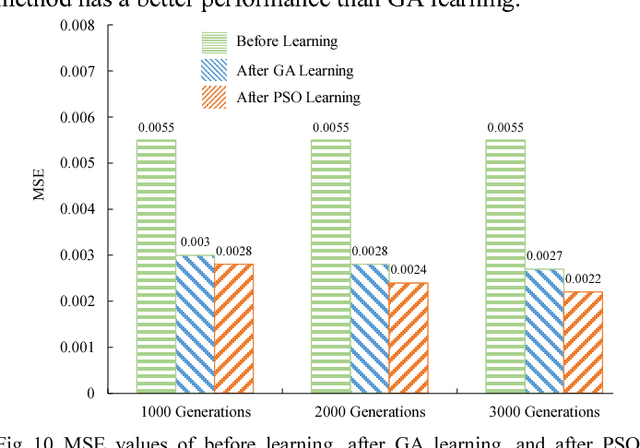
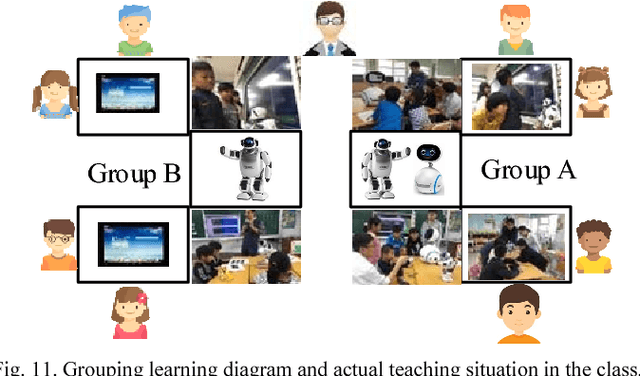
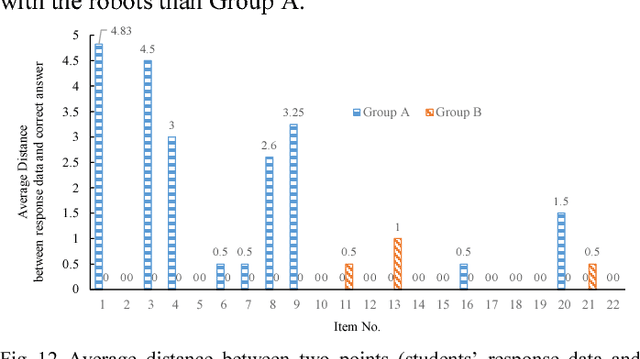
Abstract:An intelligent robot agent based on domain ontology, machine learning mechanism, and Fuzzy Markup Language (FML) for students and robot co-learning is presented in this paper. The machine-human co-learning model is established to help various students learn the mathematical concepts based on their learning ability and performance. Meanwhile, the robot acts as a teacher's assistant to co-learn with children in the class. The FML-based knowledge base and rule base are embedded in the robot so that the teachers can get feedback from the robot on whether students make progress or not. Next, we inferred students' learning performance based on learning content's difficulty and students' ability, concentration level, as well as teamwork sprit in the class. Experimental results show that learning with the robot is helpful for disadvantaged and below-basic children. Moreover, the accuracy of the intelligent FML-based agent for student learning is increased after machine learning mechanism.
FML-based Dynamic Assessment Agent for Human-Machine Cooperative System on Game of Go
Jul 16, 2017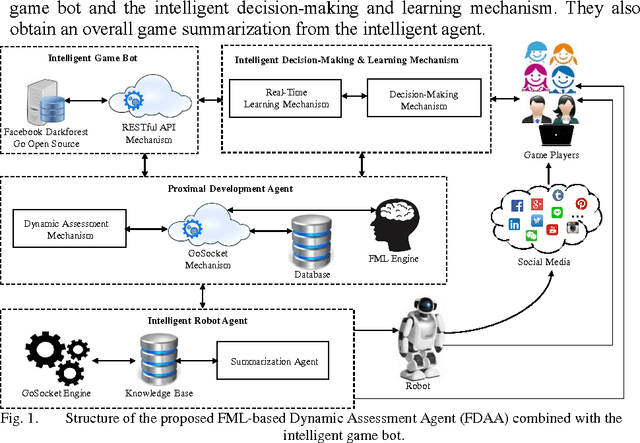
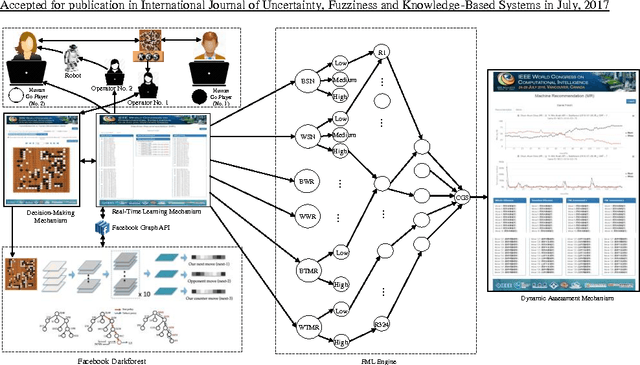
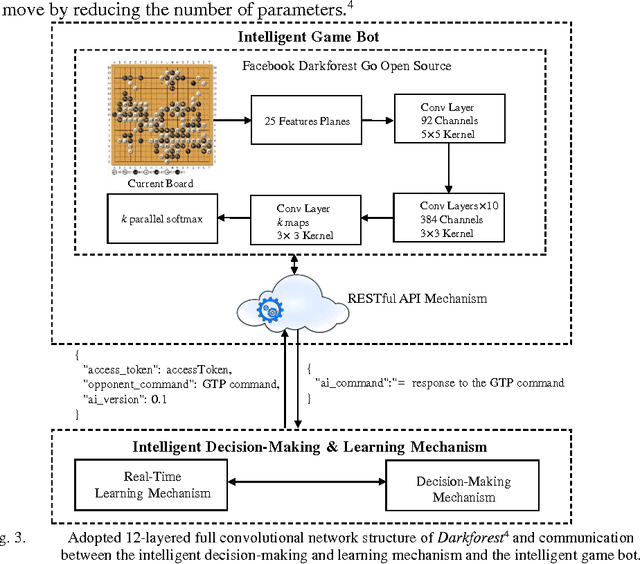

Abstract:In this paper, we demonstrate the application of Fuzzy Markup Language (FML) to construct an FML-based Dynamic Assessment Agent (FDAA), and we present an FML-based Human-Machine Cooperative System (FHMCS) for the game of Go. The proposed FDAA comprises an intelligent decision-making and learning mechanism, an intelligent game bot, a proximal development agent, and an intelligent agent. The intelligent game bot is based on the open-source code of Facebook Darkforest, and it features a representational state transfer application programming interface mechanism. The proximal development agent contains a dynamic assessment mechanism, a GoSocket mechanism, and an FML engine with a fuzzy knowledge base and rule base. The intelligent agent contains a GoSocket engine and a summarization agent that is based on the estimated win rate, real-time simulation number, and matching degree of predicted moves. Additionally, the FML for player performance evaluation and linguistic descriptions for game results commentary are presented. We experimentally verify and validate the performance of the FDAA and variants of the FHMCS by testing five games in 2016 and 60 games of Google Master Go, a new version of the AlphaGo program, in January 2017. The experimental results demonstrate that the proposed FDAA can work effectively for Go applications.
 Add to Chrome
Add to Chrome Add to Firefox
Add to Firefox Add to Edge
Add to Edge